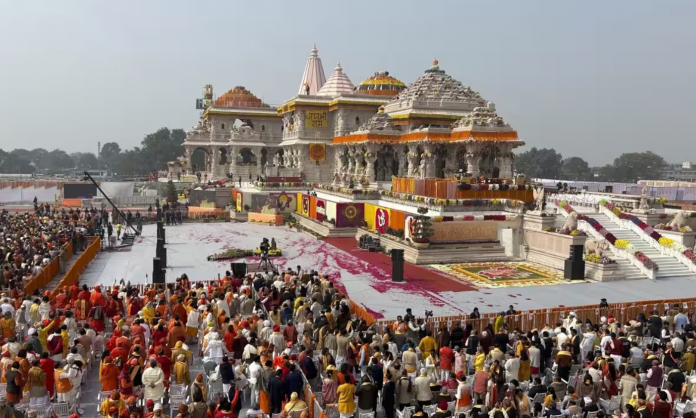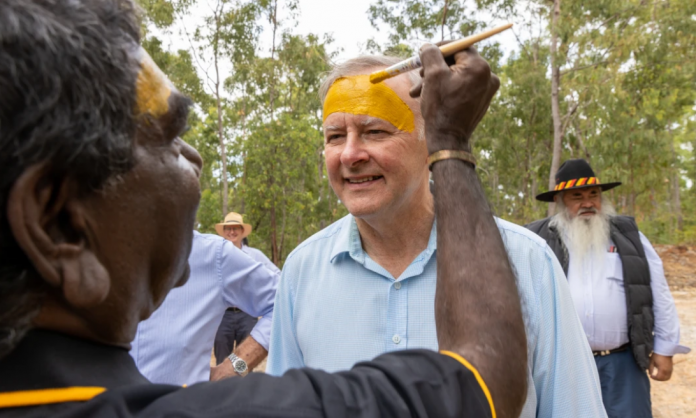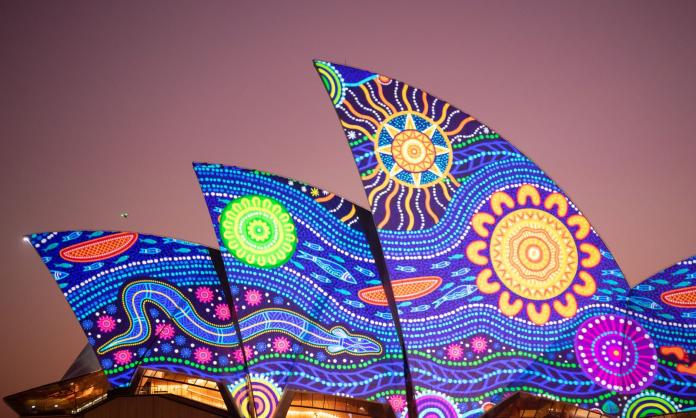Derek Chauvin has been convicted of the murder of George Floyd. How much should we celebrate?
We’re certainly entitled to feel elated. Cops have committed so many brazen murders, particularly of Black men, without being charged, let alone convicted. To finally see one have to face consequences for this unremitting violence is deeply satisfying and long overdue. According to criminal justice professor Philip M. Stinson, writing in Politico, “less than 2 percent of the on-duty police officers who kill someone are ever charged with a crime and held accountable in the criminal courts”.
Even early on in this case, acquittal for Chauvin seemed like a real possibility. Remember how the Minneapolis Police Department tried to spin the killing away, describing it as a “medical incident”. We might have expected the “blue wall”, the police conspiracy of silence and lies, to defend Chauvin and keep him on the streets. He had, after all, survived 18 previous brutality complaints.
But that didn’t happen this time. Chauvin, the murderer, went down. He is now a member of the world’s biggest prison population, a population he himself helped add to with his decades of violent, terroristic policing on the streets of Minneapolis.
Maybe in another era, Chauvin’s conviction would have been hailed as proof that the system works, that protest isn’t necessary, and that justice can be achieved through the proper channels. But that wasn’t possible this time. Partly, that's because this time, millions could see that to convict a murderer—for a murder carried out in broad daylight in front of a crowd of witnesses—it took an earth-shaking movement, the biggest social movement measured by number of participants in the history of the US. But it's also because it’s so clear to so many that to win anything approaching justice will take a lot more than a single conviction.
This result is absolutely, undeniably, a victory that was only secured because of the street protests. If anyone ever tries to argue that protests don’t work, tell them to go visit Derek Chauvin in Oak Park Heights Prison. The first protest calling for justice for George Floyd happened before he had even been murdered: it was made up of those heroic witnesses who gathered on the sidewalk to watch the killer cops, to heckle them and argue with them, to record their actions and try to intervene. That first little collective gathering changed the course of history; the faces of its participants were recorded by the police’s body cameras.
As they built up their numbers and did what they could to intervene and try to save George Floyd, they launched a movement. The video of the murder that was recorded by Darnella Frazier, which included the voices of the members of the crowd telling the police they were killing a man, didn’t just become the key evidence in the trial of Chauvin. It ignited the wave of protests that helped to define 2020 as a year of collective resistance as much as it was the year of the pandemic.
From that first gathering of witnesses, the movement drew in millions of people, initially in the United States and then internationally. Confronting and heckling the cops as they killed Floyd led to a series of daylight protests and night-time riots in Minneapolis that resulted in the burning down of a police station; that helped inspire peaceful, mass demonstrations drawing in millions of people, in major cities around the US, as well as courageous little protests in tiny towns; that gave rise to militant confrontations targeting the White House itself, an act that proved that protesters were confronting something much bigger than just the Minneapolis Police Department. From the very first moment, both Black and white protesters were united in a struggle that combined militancy with mass participation. After decades of the militarisation of the cops, bold slogans like “defund the police” and “abolish the police” became part of everyday debate—and something that the petrified Democrats had to dance around during the election.
The impact of the movement was evident from the moment of the trial’s preparation. As the New York Times reported, even the jury selection process was different. In the United States, a white juror is pretty likely to be a racist right-winger, sympathetic to police and hostile to their victims. But this time it was different. After a year of Black and white protesters uniting in huge demonstrations, the lawyers found that the jurors were behaving differently; white potential jurors were more sympathetic to Black victims of police brutality now. “Whiteness in this case isn’t as useful a proxy,” noted Paul Butler, an ex-prosecutor who teaches law at Georgetown. Even extreme conservatives were cowed into accepting premises of the movement. One juror, a self-described supporter of the pro-cop “Blue Lives Matter” slogan, wrote that “it is obvious that change needs to happen” in her responses to a questionnaire that made up part of the selection process. Black jurors questioned the system more broadly: “My opinion has been, why didn’t the other officers stop Chauvin?” one asked in his responses to the same questionnaire. By the time the trial began, the movement had already changed things: jurors who opposed oppression were more bold, white people in the deeply racist US had learned more about solidarity through the growth of the movement, and pro-cop reactionaries had been intimidated into softening their position.
The threat of future demonstrations and a return of the movement even put a crack in the “blue wall”. Cops turned on cops; senior police threw Chauvin under the bus, hoping to secure a conviction and avoid sparking another anti-cop rebellion. Minneapolis’ police chief, Medaria Arradondo, testified that choking handcuffed men to death in the street “is not part of our training”. Well, you’d hope not. That meaningless statement ignores that systematic police brutality can be transmitted through the informal, secret, unwritten culture of the thugs in blue. But Arradondo’s statement was nonetheless important. It showed that the movement had broken new ground, and created new precedents: police chiefs can be pressured into throwing their officers to the wolves when they think the alternative might be worse. That might make cops think twice about their killings a little more often; hopefully it will give more courage and resolve to protesters in the future, as well.
Even President Joe Biden—whose 2020 presidential campaign was deeply ambivalent about that movement, and whose “Biden plan for Black America” was mostly focused on better funding for police departments and subsidies for Black entrepreneurs—has had to pay tribute to “a summer of protest we hadn’t seen since the Civil Rights era in the ‘60s” and effectively campaigned for Chauvin to be convicted.
From police chiefs to the top echelons of US power, respectable opinion coalesced around the need for conviction, not as a move towards serious reform of the repressive state apparatus that generates this violence, but as a survival mechanism: so profoundly has the Black Lives Matter movement challenged the legitimacy of US power and the business model of capitalism.
The testimony of witnesses was proof of the everyday courage that working class and Black Americans exhibit under the terroristic rule of the cops. Even as they saw a gang of police murdering a man in broad daylight, this small group decided to risk their own lives to try to hold them to account on the spot. Donald Williams, a Black professional fighter, was already a hero for his actions on the day of Floyd’s death, when he tried to get Chauvin and his accomplices to stop before Floyd died. He became a hero twice over through his poetic, moving, and defiant testimony.
Williams told the jury how George Floyd’s death agonies had reminded him of a fish he’d caught earlier in that day, gasping helplessly for breath in a plastic bag. But he also talked about the role of Officer Tou Thao, the cop who held the crowd back and stopped them from saving Floyd’s life. “He was the dictator. He dictated what went on on the curb. He controlled the people. He controlled me. He was the guy that let it go on.” Thao’s role as the “dictator” was confirmed by the off-duty firefighter and EMT, Genevieve Hansen, a white woman who was badly shaken by being physically intimidated out of helping a dying man. “If you really are a Minneapolis firefighter,” Thao told her, “you would know better than to get involved.”
Chauvin’s violence and Thao’s role as the “dictator” provides an answer to those who ask what would happen if the police really were abolished: fewer people would be murdered, and trained professionals might be allowed to help dying men.
If not for the social movement, Chauvin would never have been convicted. But as everyone knows, there will be many more Chauvins, and many more George Floyds—and not necessarily more convictions. Not every police killing is recorded on video, transpiring in broad daylight in front of witnesses. Not every killing inspires a movement that terrifies even the chiefs of police. Banning chokeholds won’t stop police from shooting their victims. On every single day of Derek Chauvin’s trial, a cop killed someone in the US. Just as the verdict was delivered for Chauvin, Columbus police shot and killed 16-year-old Ma’Khia Bryant, and three officers yelled “Blue Lives Matter” at mourning bystanders.
American capitalism is remarkable for the extremity of its state violence, for its deep racism, and for its bizarre and monstrous system of mass incarceration. A few more convicted cops won’t be enough to change that. And the violence and racism of the US are just a concentrated version of the violence and racism that characterises world capitalism.
That’s why the Black Lives Matter movement was an international movement, with protests throughout Europe and Australia in the middle of 2020. They weren’t only protests in solidarity with the victims of police murder in the US. They showed that racism and police brutality are seen and recognised even in countries where cops don’t kill so frequently, and where the prison-industrial complex isn’t as monstrous as in the US. The system that killed George Floyd is bigger than Derek Chauvin, bigger than Minneapolis, and bigger even than the US.
The movement of 2020 wasn’t just about protest; it also raised important ideas. The debate about defunding and abolishing the police was electrifying. The slogans were shocking, radical, and disruptive. The fact that those slogans were attached to a mass movement was dangerous for the establishment. Defunding was sidestepped, or flatly refused, by Democrats. “Abolition” was sometimes accepted as a worthy but meaningless platitude. But with those slogans guiding a discussion, the movement looked towards a worldview that connects racism, the violence of the US state, and the extreme inequality that makes being poor a crime.
The police are the enemy. They are an institution that exists to uphold a system of oppression, even when they are under so much pressure that they put on a sorrowful face and throw some of their own most egregious members into jail; that’s why defunding them is such an important, radical, and timeless slogan. But they won’t be “abolished” while capitalism exists, because a society based on inequality requires both scapegoats to oppress and enforcers to carry out violence to protect the system.
Winning meaningful justice will take a massive fight, but there are reasons for optimism. The US has proved itself not just a country of racism, but also one of heroic resistance. Black and white workers fought in solidarity throughout 2020. They changed the consciousness of hundreds of millions of people, inspired resistance around the world, and intimidated the police so much that they had no choice but to abandon Chauvin. That sets the stage for more victories in the future.
But justice will mean much more than one, two, or a hundred convictions. Justice will mean an end to police killings, to incarceration, and to a system that has thrived for centuries on racism and violence. Justice will come when we have built a society based on equality and freedom, not oppression. To win that, we’ll need a mass movement with a revolutionary worldview and a level of organisation serious enough to challenge and defeat the armed defenders of capitalism all around the world.











